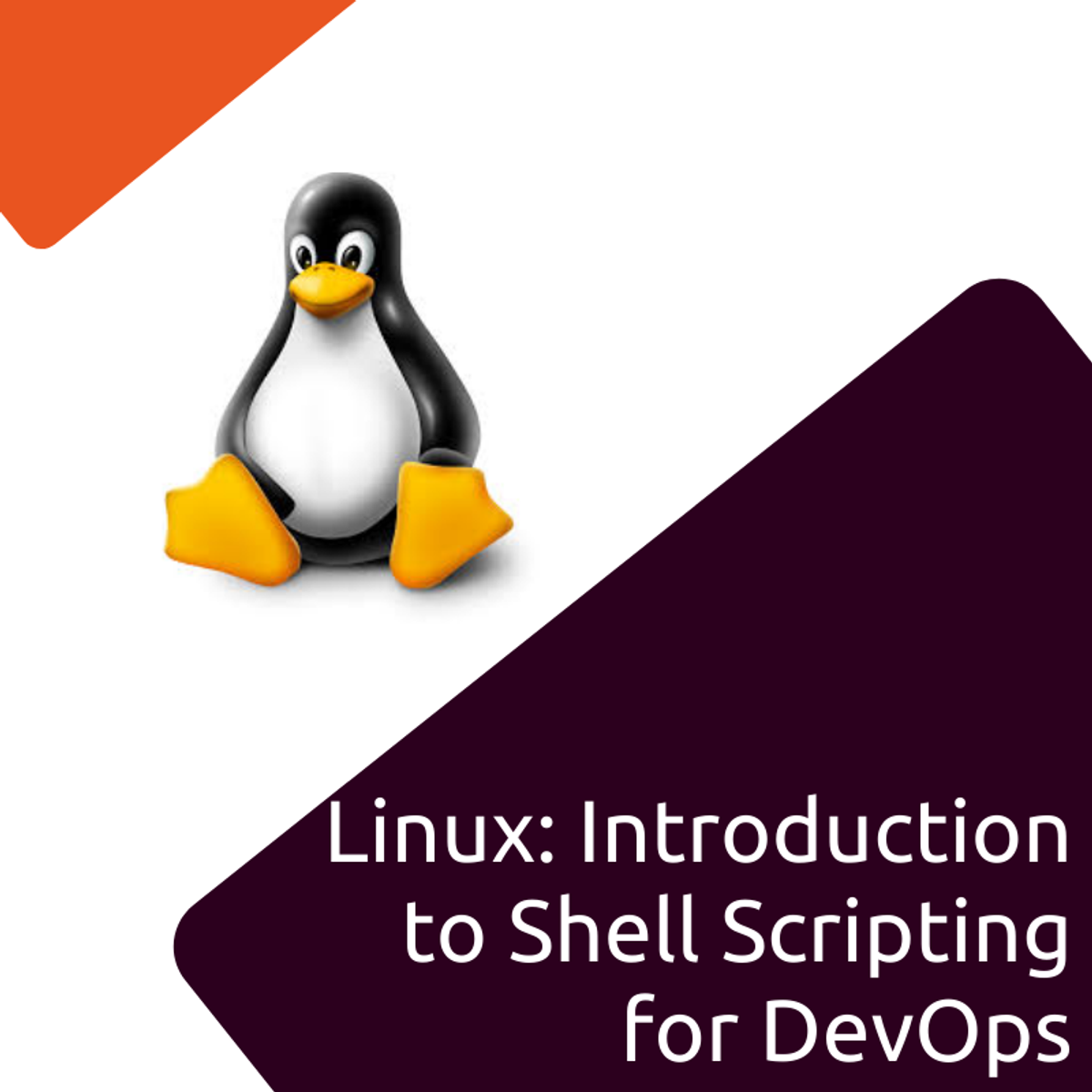Back to Courses









Support And Operations Courses - Page 18
Showing results 171-180 of 203

Examining BigQuery Billing Data in Google Sheets
This is a Google Cloud Self-Paced Lab. Use Google Sheets data connector to harness the power of BigQuery. The Sheets data connector lets you access and use data analytic functions to run queries and analyze data. You could create a Sheet to access and analyze your sales data, for example, then configure your Sheet to always reflect current data.

Getting Started with Ubuntu Linux
In this one-hour, project-based course, you'll be introduced to the diverse tree of Linux distributions and explore a version of Ubuntu, called "Xubuntu." You'll learn how to open applications and change settings, how to customize the Desktop and download new color schemes. You'll also learn how to install software and games.
This guided project will introduce you to the following concepts:
-Linux family tree
-Ubuntu Linux Operating System
Note: This course works best for learners who are based in the North America region. We’re currently working on providing the same experience in other regions.

Technical Support Fundamentals
This course is the first of a series that aims to prepare you for a role as an entry-level IT Support Specialist. In this course, you’ll be introduced to the world of Information Technology, or IT. You’ll learn about the different facets of Information Technology, like computer hardware, the Internet, computer software, troubleshooting, and customer service. This course covers a wide variety of topics in IT that are designed to give you an overview of what’s to come in this certificate program.
By the end of this course, you’ll be able to:
● understand how the binary system works
● assemble a computer from scratch
● choose and install an operating system on a computer
● understand what the Internet is, how it works, and the impact it has in the modern world
● learn how applications are created and how they work under the hood of a computer
● utilize common problem-solving methodologies and soft skills in an Information Technology setting

Continuous Integration and Continuous Delivery (CI/CD)
A principle of DevOps is to replace manual processes with automation to improve efficiency, reduce human error, and accelerate software delivery. This requires automation that continuously integrates code changes and continuously delivers those changes to a production environment.
This course introduces you to Continuous Integration and Continuous Delivery (CI/CD), an automated approach to software development. You’ll discover the benefits of CI/CD for creating a DevOps pipeline and explore popular CI/CD tools.
You’ll examine the key features of CI, explore social coding, and the Git Feature Branch Workflow. You will also learn about standard CI tools and gain a deep understanding of GitHub Actions workflows and their components.
This course provides an overview of CD and its goals, benefits, and best practices. You will learn the requirements of a CI/CD pipeline and discover standard CD tools.
You will explore Tekton and discover how its components work together to create a CD pipeline. You will learn how to build a pipeline, pass parameters to a pipeline, build triggers to start pipeline runs, implement reusable tasks, and create custom tasks. You will discover how to complete your CD pipeline by building a container image and deploying your application to an OpenShift Kubernetes cluster.
Throughout the course, you can hone your skills and challenge yourself through several hands-on labs.

Customer Service Fundamentals
There are a growing number of exciting, well-paying jobs in today’s tech industry that do not require a traditional college degree, an one of the hottest areas with high demand is in IT customer service and support. Customer Service is a perfect entry point to start your career in IT, with a multitude of job openings ranging from onsite or remote help desk work to customer care or client support. We can help you get there with the Customer Service Fundamentals course.
We will help you to build the knowledge and develop the skills needed to be a successful Customer Service Specialist:
• Communication Skills which focus on clear, concise communication and listening.
• Appropriate empathetic behavior such as such as patience, curiosity, and willingness to help.
• Problem solving to research an issue and help determine an appropriate resolution.
• Process adherence to ensure the proper flow and Service Level Agreements are met.
The course is divided into 4 modules, and you will be assessed and awarded badges along the way! The course also includes interactive training including labs to reinforce all of the learning components above.
At the conclusion of the course, you will receive an email notification from Acclaim with instructions for claiming the badge. Upon accepting your badge, it will be necessary to create a user account on Acclaim, where you will have the ability to manage your badge(s), opt-in to other communications and features, as well as take advantage of features allowing you to share your badge to social media and other destinations.

Telehealth Best Practices and Uses
Telehealth uses technology tools such as a cellphone or laptop to give patients and doctors the ability to support healthcare communication and services remotely. The field of telehealth has seen tremendous growth, with telehealth use increasing across all specialties and becoming even more accessible.
This course is designed for healthcare professionals and employees in organizations that practice telehealth or are aspiring to work within the field. As a leading pioneer in the field of telehealth, UC Davis Health began offering telehealth services in 1992 and providing a formal telehealth academic curriculum in 1999.
Go beyond the foundational knowledge of technology tools employed and telehealth applications. Learn about the most effective practices in implementation, regulatory compliance, and how to practice with a health equity lens. With insight from the CEO of UC Davis Health, David Lubarsky, you will leave the course better able to improve your telehealth practice and focus on the elements of telehealth that matter most to your organization and to the patients you serve.

IT Ticket Management with Typeform
By the end of this project you will be able to use Typeform to create a dynamic form to manage employee IT ticket submissions. You will explore the different question templates and use free features to create a beautiful form that will streamline the helpdesk process. You will be able to use Typeform to create, personalize, and share your survey, as well as analyze results. Once you have completed the project you will have the skill base to create forms and surveys on your own for your business.
You can view Typeform’s full security policy here:
https://help.typeform.com/hc/en-us/articles/360029259552-Security-at-Typeform

Learning TensorFlow: the Hello World of Machine Learning
This is a self-paced lab that takes place in the Google Cloud console. In this lab, you learn the basic ‘Hello World' of machine learning. Instead of programming explicit rules in a language such as Java or C++, you build a system that is trained on data to infer the rules that determine a relationship between numbers.

Security Awareness Training
The security of an organization is of the utmost importance and every member of the organization's staff plays a vital role in defending against cyber threats. One of the best ways to protect the organization is to institute a company-wide security-awareness training initiative.
This course is a complete foundational security awareness training program that covers a wide array of topics for nearly every type of end-user and learner level. The content is designed to allow organizations to be able to provide a comprehensive training program to help them protect their information assets against threats.
This training lasts approximately 2 hours and was designed to be engaging and is based on real scenarios staff may face. The training is modular and does not have to be completed in one sitting.
Topics included in this course are as follows:
• Importance of Security
• Data and Account Security
• Passwords
• Networking and Mobile Security
• Malware
• Social Engineering

Linux: Introduction to Shell Scripting for DevOps
In this 1-hour long project-based course on Linux: Introduction to Shell Scripting for DevOps, you will be writing your own Bash/Shell scripts for scratch.You will be going through all of the key components that make up the bash script, from exit statuses, the test command, if/else statements, loops and file archiving. You will no longer be completely confused when looking at Bash scripts, and will have a working knowledge which allows you to start working with scripts yourself.
This course is designed for any person working or who intends to work with Linux, from Linux system administrators to developers and DevOps practitioners. Or even if you are a student who is curious to get comfortable with Linux this course is for you also.
This is an intermediate level course and is designed for an individual who has a beginner's knowledge of the Linux/Unix command line and Unix crud practices in computer science.
Note: This course works best for learners who are based in the North America region. We’re currently working on providing the same experience in other regions.
Popular Internships and Jobs by Categories
Browse
© 2024 BoostGrad | All rights reserved


